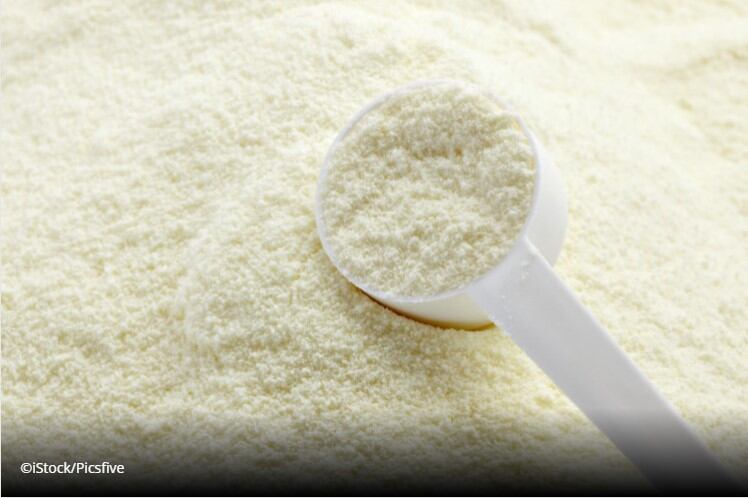The EC’s green light approves a new fermentation method for the novel food Lacto-N-neotetraose, a human milk oligosaccharide (HMO), currently produced from the Escherichia coli strain K-12.
Under the EC’s authorisation, the HiMO can now be produced via the combined activity of the derivative strains PS-LNnT-JBT and DS-LNnT-JBT of E. coli strain BL21(DE3).
Concerns previously flagged by the European Food Safety Authority (EFSA) over ash, yeast and mould content produced by this method were acknowledged as within safe levels and amended accordingly.
The decision brings to an end a regulatory process that began in June 2019, where Chr. Hansen submitted the application to the Commission.
The application included a proposed update to account for the increased levels of ash from less than or equal to (≤) 0.4 % to ≤ 1.0% as well as a higher level for the presence of yeasts and moulds.
Chr. Hansen proposed an increase from the current ≤ 10 Colony Forming Units per gram (CFU/g) of novel food for each type of microorganism to ≤ 50 CFU/g for the combination of the two.
Other amendments includes accounting for the absence of methanol (from the current ≤ 100 milligrams per kilogram (mg/kg), and of Lacto-N-neotetraose fructose isomer (from the current ≤ 1.0%).
Jennewein acquisition
Chr Hansen, makers of HMO’s such as 2′-Fucosyllactose (2'-FL), 3-Fucosyllactose (3-FL), 6′-Sialyllactose (6′-SL), 3′-Sialyllactose (3′-SL) and Lacto-N-tetraose (LNT) acquired the portfolio as part of the acquisition of HMO specialists Jennewein Biotechnologie back in Sept 2020.
According to Chr. Hansen, the HMOs available would blend well with probiotics, specifically Chr. Hansen’s probiotic bacteria such as LGG and BB-12 for use in infant formula.
Other firms have followed suit and made similar acquisitions in an attempt to grab a slice of the HMO market, predicted by Chr. Hansen to reach around €400m by 2025 and over €1 bn in the long-term.
Danish HMO supplier Glycom was the subject of a takeover by DSM in February 2020, in a deal worth €765m ($836m).
As part of the deal, DSM added EU-approved Glycare, 2FL and Glycare LNnT to its HMO product portfolio for use in infant nutrition. Since then DSM has launched four additional HMOs that includes GlyCare Lacto-N-Fucopentaose I.
Other firms eager to get in on this sector include Abbott, which launched Similac Pro-Advance in 2016 containing 2’FL, while Nestlé Nan Optipro Supreme, launched in Spain in summer 2017, which contained the two HMOs, 2’FL and LNnT.
Formula premiumisation
This activity taps into a drive now to upgrade current infant formula offerings, adding premium ingredients like omega-3 fatty acids, pre- and probiotics, and additional HMOs to better mimic human breastmilk.
Market analysts Euromonitor has identified the emergence of hypo-allergenic milk formula, organic, as well as goat milk formula as another direction firms are taking to enhance current offerings.
“The health benefits of HMOs could encourage a greater number of mothers and health professionals who normally favour breastfeeding to see these products as a suitable alternative for occasional use,” says Euromonitor.
“However, due to the high production costs of synthetic HMOs, milk formula brands containing these ingredients will retain a distinct premium positioning, and future legislation could limit the types of HMOs which will be allowed in milk formula.”




